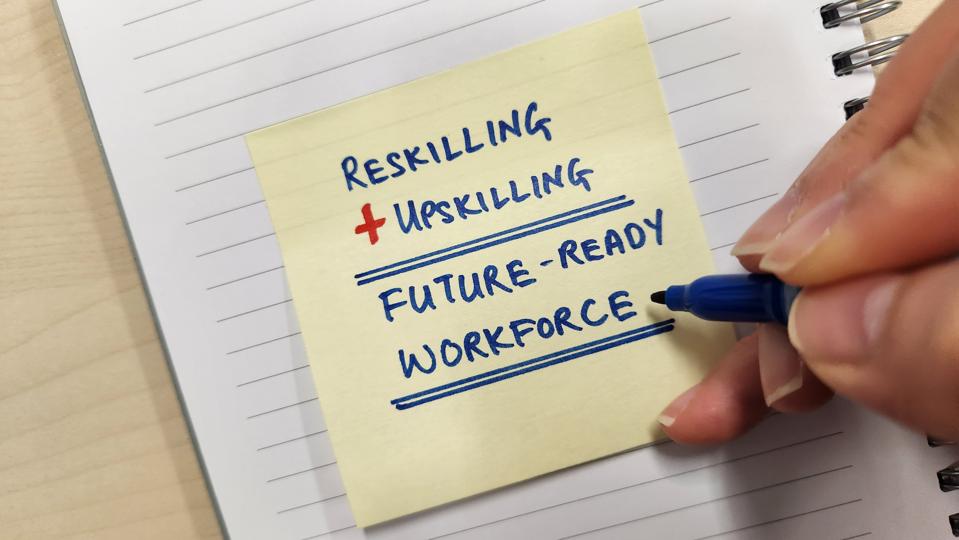The future of humanity is increasingly intertwined with artificial intelligence (AI), a technological advancement that promises to revolutionize industries and streamline operations. However, it also brings a wave of uncertainty, particularly among employees who fear being replaced by software and machines.
Open communication about your company’s AI strategy and its implications for the workforce can build trust and engagement among employees. It’s essential for us corporate leaders to navigate this transition responsibly, embracing AI while investing in upskilling and reskilling employees to work alongside these technologies.
A recent study by the World Economic Forum predicts that by 2025, 85 million jobs may be displaced by a shift in the division of labor between humans and machines, while 97 million new roles may emerge that are more adapted to the new division of labor between humans, machines, and algorithms.
This underscores the importance of preparing your teams for the AI era without resorting to mass layoffs.
AI for Everyone, available on Coursera and led by renowned AI expert Andrew Ng, is an ideal course for non-technical professionals. Offering a well-structured introduction to AI’s impact on business and society, it’s split into four non-technical modules.
Fast.ai, led by Jeremy Howard, is another deep learning library and AI community known for its practical approach to teaching deep learning, making it accessible to a wide audience without requiring extensive mathematical or technical prerequisites. This course is the longest-running and most widely-used deep learning course in the world, and has launched many careers in research, industry, and startups.
Many institutions offer free certification in Generative AI, with Databricks being one of them.
By providing training programs and continuous (free) learning opportunities, organizations can equip their workforce with the skills needed to adapt to an AI-driven workplace.
Instead of viewing AI as a threat, companies should position it as a tool that can enhance human capabilities, not replace them. For example, AI can take over repetitive tasks, allowing employees to focus on more creative and strategic aspects of their jobs. This not only increases productivity but also job satisfaction.
The advent of AI should not be a harbinger of job losses but rather an opportunity for growth and innovation. Companies have a responsibility to prepare their workforce for the future by upskilling and fostering a positive attitude towards change. By doing so, they can turn the challenge of AI into a real competitive advantage.
Keeping up with the learning curve is crucial. What AI classes are you eyeing this year?

